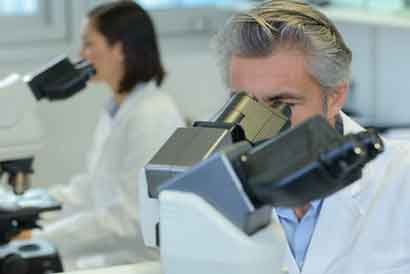Pharmaceutical Technician: An Interview with a Drug Guy

When talking with Colin, a member of the Accentuate Writers Forum, the other day, I discovered that he is a pharmaceutical technician. I didn’t know exactly what that meant and wanted to find out. I thought some of you might be interested in what a pharmaceutical technician does also, so I asked Colin if he would do an interview with me. He kindly agreed to answer my questions. I think you’ll find the interview interesting and informational.
Angel: Let’s get the technical stuff out of the way first. What exactly is a pharmaceutical technician?

Colin: My main duties or function is to ensure everything runs as it should. Each machine is in its own clean room with strict procedures for entering and working inside. The environment is computer controlled for air pressure and particle count. Temperature and humidity are also tightly monitored. I’m trained to ISO standards to work aseptically, and have the highest-level clean room clearance. To know more about the Emerging, read here: changecontrol.com.
Angel: So you run and control the machines that make the drugs?
Colin: No, I do the set-ups, maintenance and repairs. Along with the occasional program change and frequent machine upgrades and improvements.
Part of my job is to identify any potential problems with projected modifications and include them in the project schedule.
Angel: What educational avenues did you have to pursue to become a pharmaceutical technician?
Colin: I originally trained as an electrician, and then took in electronics, robotics and process automation. I now cover the making of water, steam and pneumatic and hydraulic systems.
Angel: How long have you been in the field?
Colin: I’ve been in the pharmaceutical industry for over 13 years and to date I can honestly say it’s the best job I’ve had.
Angel: In a picture on the forum, you are in a very interesting suit. It looks like a space suit. What part of your job requires wearing this particular garment?
Colin: Every time I enter a clean room, I have to wear the suit in the picture. Some rooms require the full respirator as shown others just a surgical mask. To get into the room in question requires two changes of clothing. One set simply to allow access to the oncology facility and the suit you see to enter any of the rooms within the suite.
Angel: What do you find most fulfilling about your occupation?
Colin: Making a difference. It might sound clichéd but to do this kind of work requires a certain dedication. The training can be a nightmare and the paperwork horrendous, but overall I love every minute of it.
Angel: What is your least favorite aspect of your occupation?
Colin: Paperwork, paperwork and more paperwork. If I need to go in to a machine during a batch, everything is recorded in triplicate and most of it by hand. First, the batch documents have to show what time I went in and came out and exactly what I did. The actual machine logbook has to show the same thing. Both documents are auditable by the FDA and/or the TGA. Finally, it all has to be entered electronically.
Angel: Are there dangers involved in your profession?
Colin: No more than any other I would think. We have frequent medical checks and blood tests. And the procedures we follow are designed to protect me as much as the product.
Angel: Would you recommend pharmaceutical technician as a good career choice?
Colin: Yes, without reservation. It can be very rewarding though at times frustrating due to the nature of the industry.
Angel: Does a career as a pharmaceutical technician pay well? There’s no need to give specifics, but it’s nice to know which careers are lucrative.
Colin: Yes, it does. Well at least in Australia it does. Plus there are other benefits such as pension and private health. I have also trained as a fire fighter and a first response safety officer and I’m a qualified first aider. So the benefits extend outside the job.
Angel: Do you think economic events have a big impact on pharmaceutical technicians?
Colin: Some are already beginning to show, with new machinery put on hold. But to be cynical, people will always get sick and sick people will always need medicine.
Angel: Is there anything else you think people should know about pharmaceutical technicians?
Colin: It can be demanding and even stressful to a point. I work long hours and occasionally do call outs. Adhering to procedures can be frustrating even for the simplest task and I enjoy every minute of it. It sounds like being a pharmaceutical technician is a very demanding, but rewarding career. Higher education is involved, but it leads to a lucrative career choice, which is very important in these times of downsizing and economic crisis. Pharmaceutical technicians are necessary in the drug industry. Is it the career path for you?
